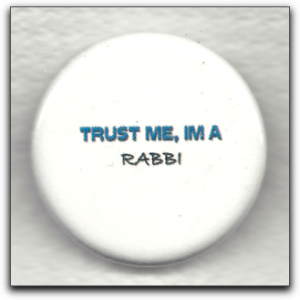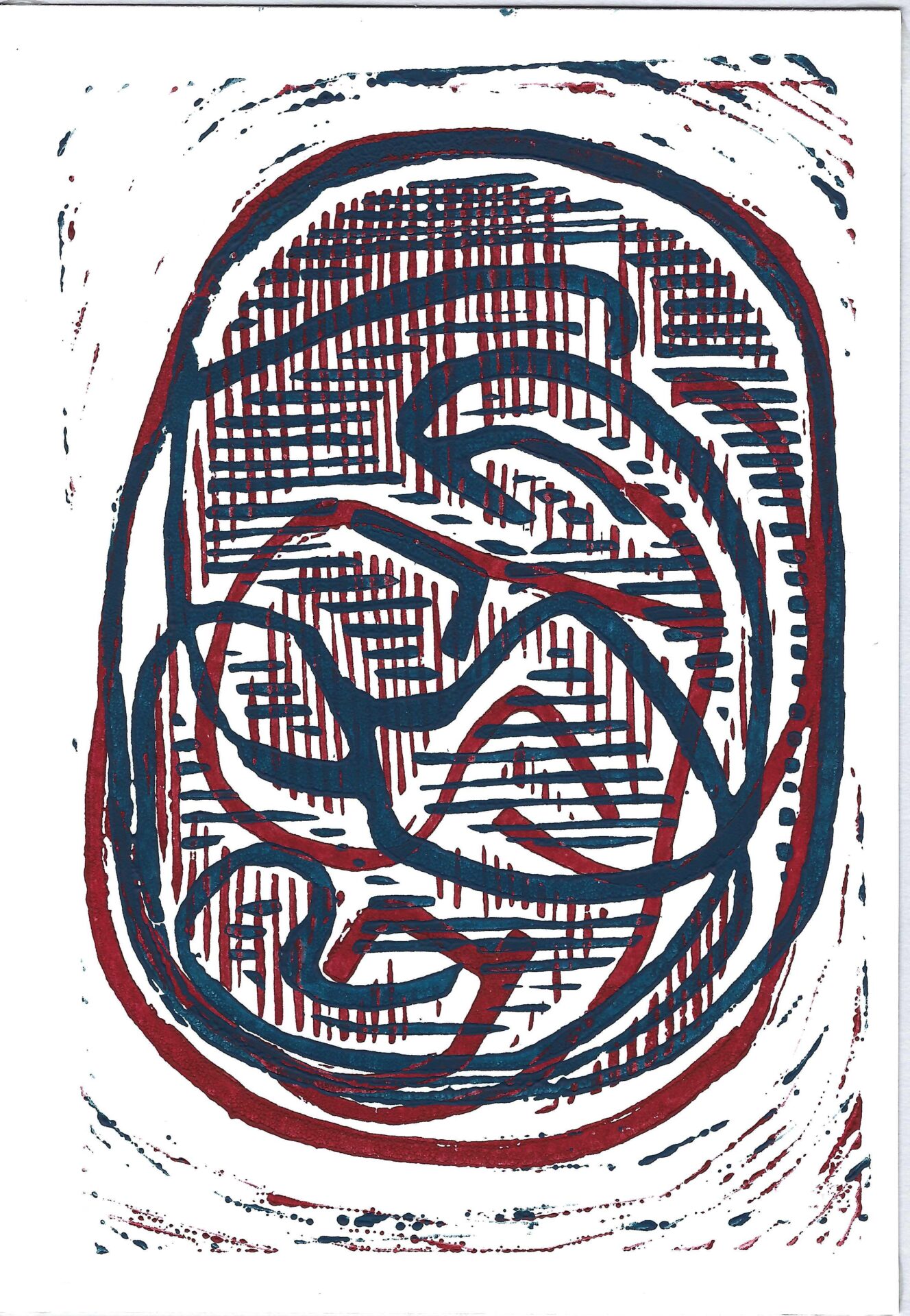don’t?
It is often hard to know whom to trust.
Each of the following buttons were sold as novelty items. The first suggesting we trust Bernard Madoff is very sad. The second is intended for fun.
I’ve never worn the first.
The other I wear at rabbinic conventions.

a shonda!
| Date: | 2009 |
| Size: | 5.7 |
| Pin Form: | clasp |
| Print Method: | celluloid |
| Text | A SHONDA! TRUST |

trust me, i’m a rabbi
| Date: | 2010 |
| Size: | 3.81 |
| Pin Form: | clasp |
| Print Method: | celluloid |
| Text | TRUST ME, I’M A RABBI |
how to?
As we approach Rosh haShannah and Yom Kippur, may we train our trust-sensors to know who, what, why, when and how to trust.
what is “#blogelul”?
My friend and colleague Phyllis Sommers has thought of yet a new creative way to prepare for Rosh haShannah. You can learn more here.
your lapel buttons
Many people have lapel buttons. They may be attached to a favorite hat or jacket you no longer wear, or poked into a cork-board on your wall. If you have any laying around that you do not feel emotionally attached to, please let me know. I preserve these for the Jewish people. At some point they will all go to an appropriate museum. You can see all the buttons shared to date.



If we’re dealing with online trust-sensors, then I think our best bet is to follow the well-known internet maxim: transparency is the new objectivity. Linking allows our readers to check up on us, to verify for themselves whether, beyond simply liking what we have to say, what we’re telling them has any basis. I’d argue that this is essentially a technological updating of the practice of חז“ל telling us from whom they learned a particular saying or opinion. Of course it’s fair to ask whether they had really learned what they were repeating from the person they were quoting. But that’s not necessarily different from linking to something and hoping that nobody is going to check whether that link actually verifies our point of view.
Thank you Yankel. You raise a good point, which is why so many of my blog posts are filled with links (that I notice from other tools I use few rarely click). And, it’s why I added the link to the phrase you highlighted in your comment.